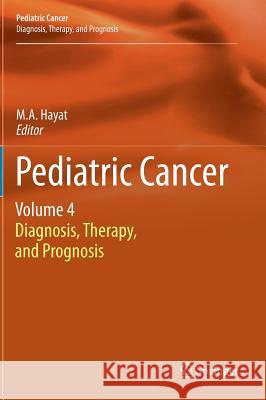Pediatric Cancer, Volume 4: Diagnosis, Therapy, and Prognosis » książka
Pediatric Cancer, Volume 4: Diagnosis, Therapy, and Prognosis
ISBN-13: 9789400765900 / Angielski / Twarda / 2013 / 346 str.
This entry in the series Pediatric Cancer offers comprehensive information on a variety of cancers, concentrating on brain tumors, the most common solid tumors and the leading cause of cancer- related mortality in children. The contents are organized in seven sections: Neuroblastoma, Medulloblastoma, Leukemia, Lymphoma, Rhabdoid, Sarcoma and Miscellaneous Tumors. Coverage includes pediatric medulloblastoma, and treatments including craniospinal radiation followed by adjuvant chemotherapy. The contributors explain diagnosis and chemotherapy of children with acute lymphoblastic leukemia, and diagnosis of bone marrow involvement in pediatric lymphoma patients. Ewing's sarcoma, a highly malignant connective tissue neoplasm formed by the proliferation of mesenchymal cells, receives extensive coverage, including targeting of molecular pathways and chemotherapy and surgical treatment. The roles of apoptotic genes, MYCN gene, MDM2, and SNP309, P13K inhibitors, alternative splicing and microRNAs, activated leukocyte cell adhesion molecule and inhibition by alu- like RNA in neuroblastoma are discussed in detail. The book explores the molecular genetics, diagnosis, prognosis and therapy of the atypical teratoid/rhabdoid tumor (AT/RT). Among the most common malignant neoplasms in children, AT/RT exhibits similarities with other CNS tumors, which can lead to misclassification, as pointed out in the book. The contributors discuss diagnosis of AT/RT type using imaging technology, and describe new strategies, including intensive multimodal therapy and high dose chemotherapy with autologous stem cell transplantation that have shown improved outcomes. Coverage of therapies includes total resection followed by aggressive chemotherapy and radiation. Discussion includes diagnosis and treatment of other pediatric tumors including adrenocortical tumors, supratentorial primitive neuroectodermal tumors, giant midline tumors, gastrointestinal stromal tumors, ep











